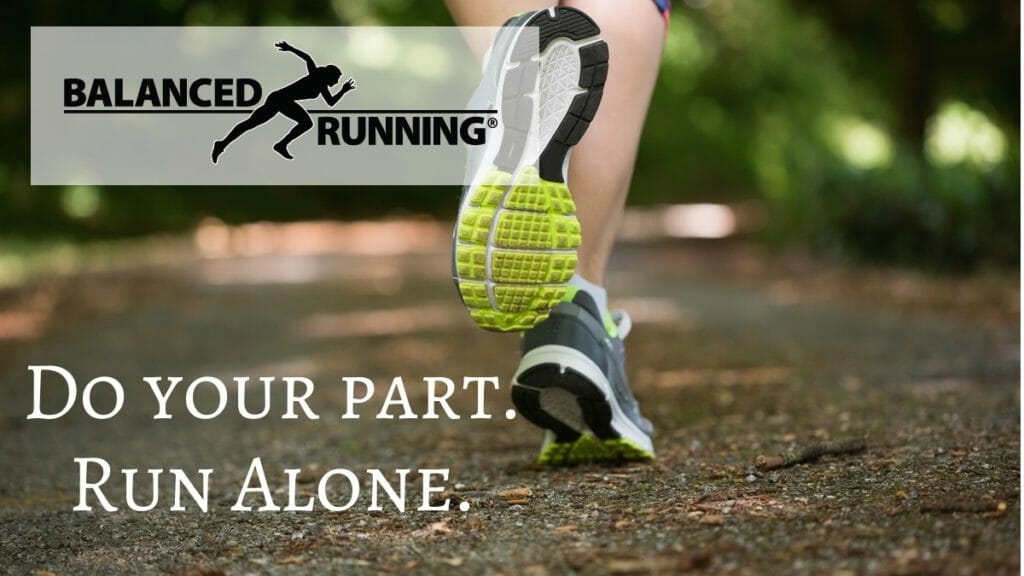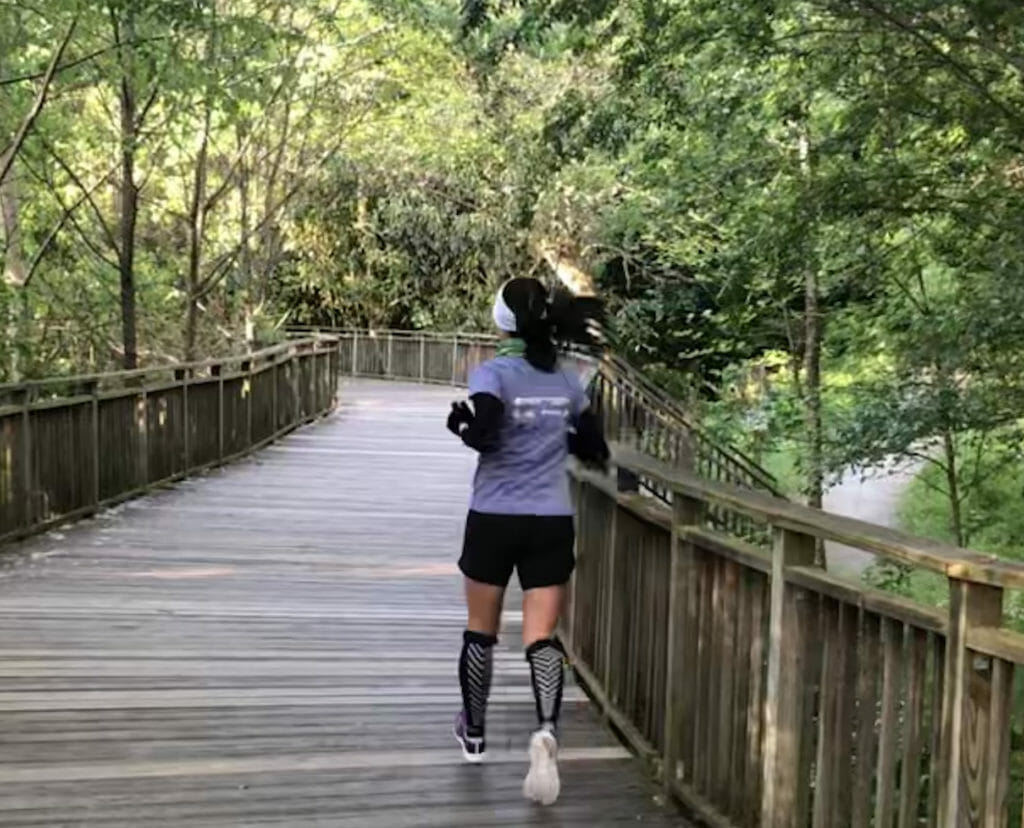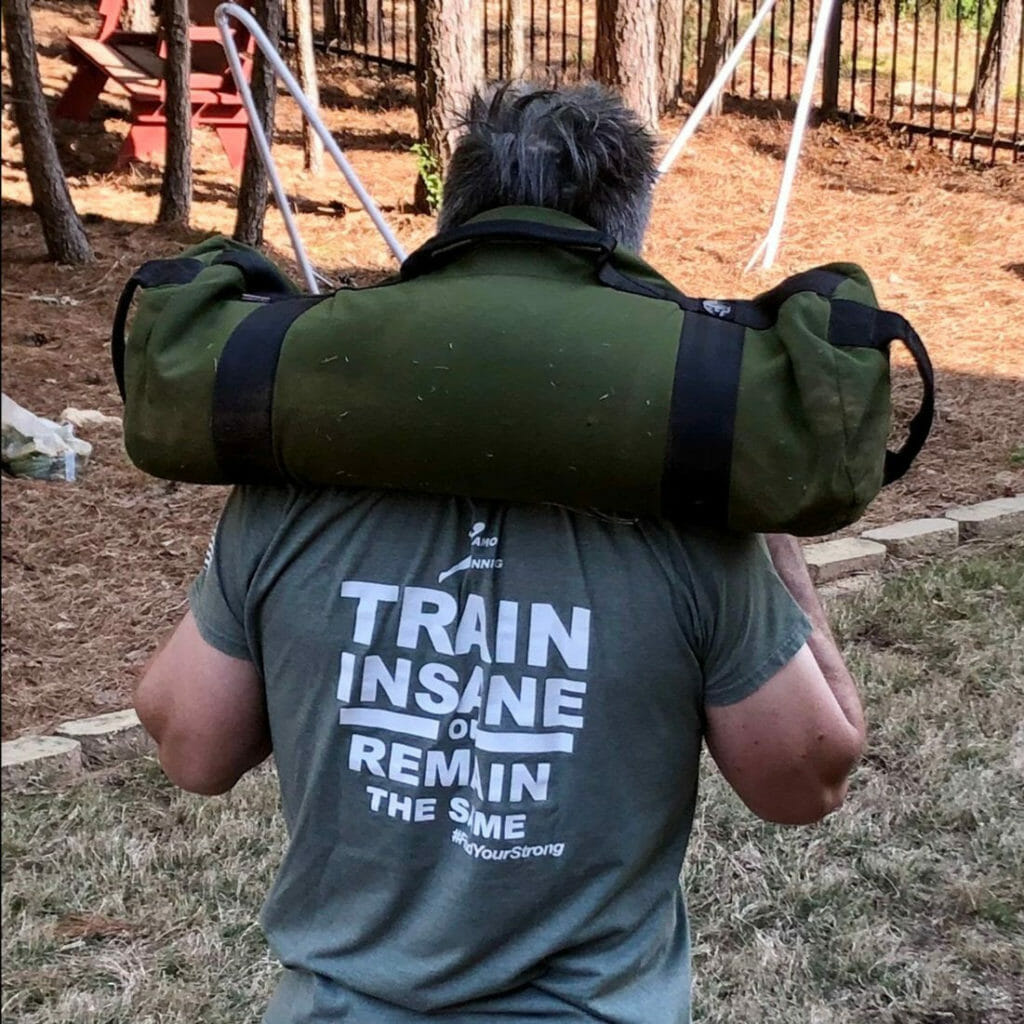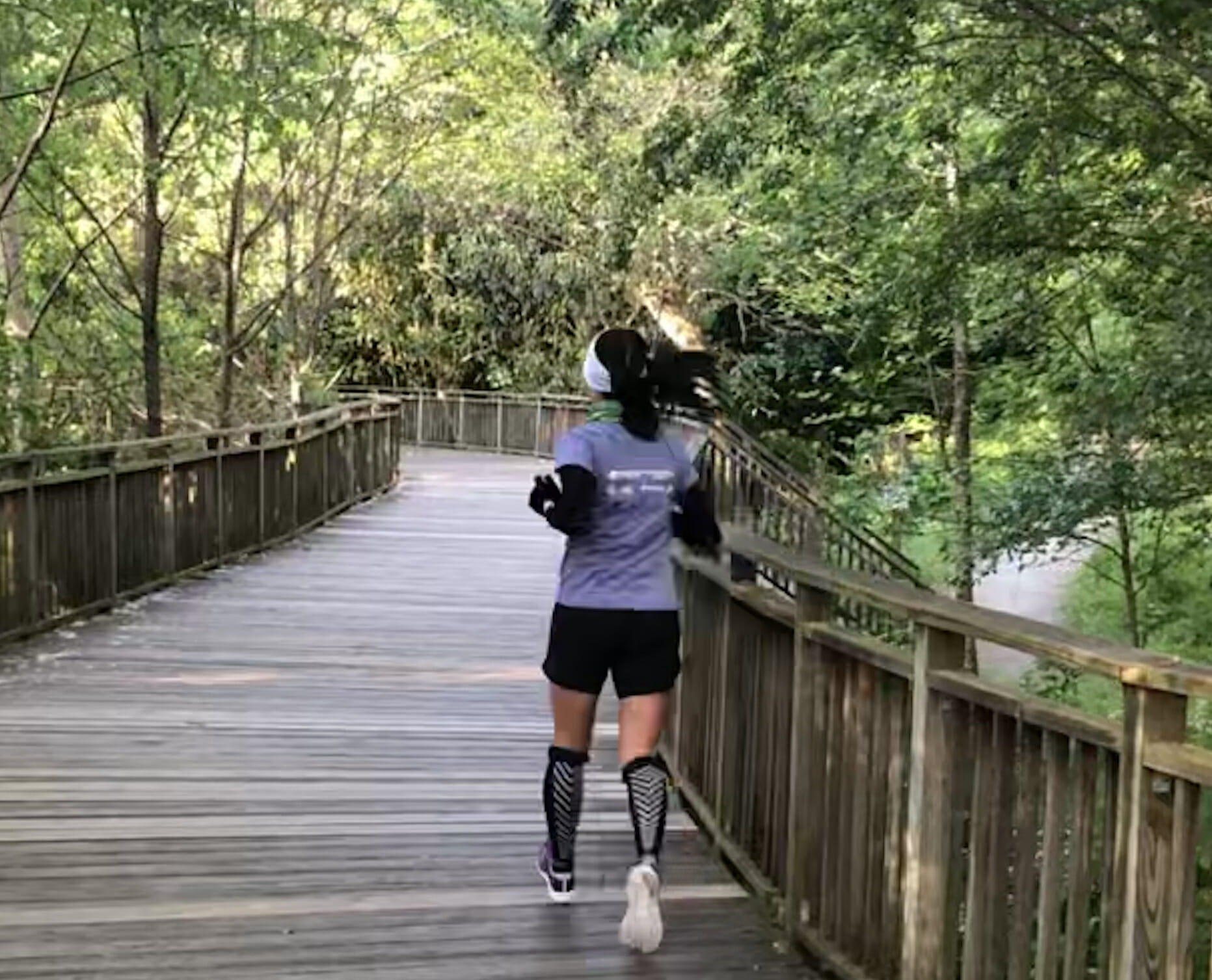Does running increase or decrease my immunity to COVID-19?
We’ve had quite a few COVID-19 related questions about running outdoors and the effect on our immune systems. In this email, we will review a few studies from certified health professionals on this topic to help you make the best decision for yourself. Disclaimer: This is NOT medical advice, if you suspect you have contracted COVID-19, please consult CDC’s published list of symptoms and contact your medical provider.
How far should I stay away from other runners, pedestrians, and/or cyclists while outdoors?
The official recommendation from the CDC is:
- 6 feet or approximately 1.8 meters
- Wear a cloth face cover when around others
- Avoid close contact

A study from 2008, found that a droplet from a spray nozzle in a wind tunnel could travel further than 6 feet due to wind velocity and the speed. A Belgian-Dutch study (by 4 engineers), taking the findings from the 2008 wind tunnel spray nozzle study, found that a droplet from a cyclist traveling at top speed on a windy day, could travel almost 20 meters (or 65 feet). This study created some anxiety among the running / cycling community as in urban areas, keeping 65 feet away from others is nearly impossible.
According to AngelaRasmussen, a virologist at Columbia University, “Outside, things like sunlight, wind, rain, ambient temperature, and humidity can affect virus infectivity and transmissibility, so while we can’t say there’s zero risk, it’s likely low unless you are engaging in activities as part of a large crowd (such as a protest). Solitary outdoor exercise is likely low-risk.”

Does Running Boost My Immune System?
How Much is Too Much Running?
“Regular, modest exercise boosts immunity, and lowers your risk of infection. That’s the good news—and the reason so many scientists believe that running and other regular exercise is a healthy, body-strengthening activity,” according to PodiumRunner.
But David Nieman, a biology professor at Appalachian State University, having spent 40 years studying links between exercise and immunity, (58 marathon finishes) also warns, “too much exercise volume and intensity turns the corner…and your risk of infection goes up.”
According to a study approved by NIH (National Institute of Health), “it is unlikely that vigorous and prolonged exercise heighten the risk of infections and should not be considered a deterrent to those seeking to become more physically active.

| We say all of this to encourage you to continue (or start) running (or walking) alone, as the health benefits of an active lifestyle are greater than the risks. We are abiding by the guidance issued by the CDC and World Health Organization (WHO) and we strongly encourage you to do the same. |

